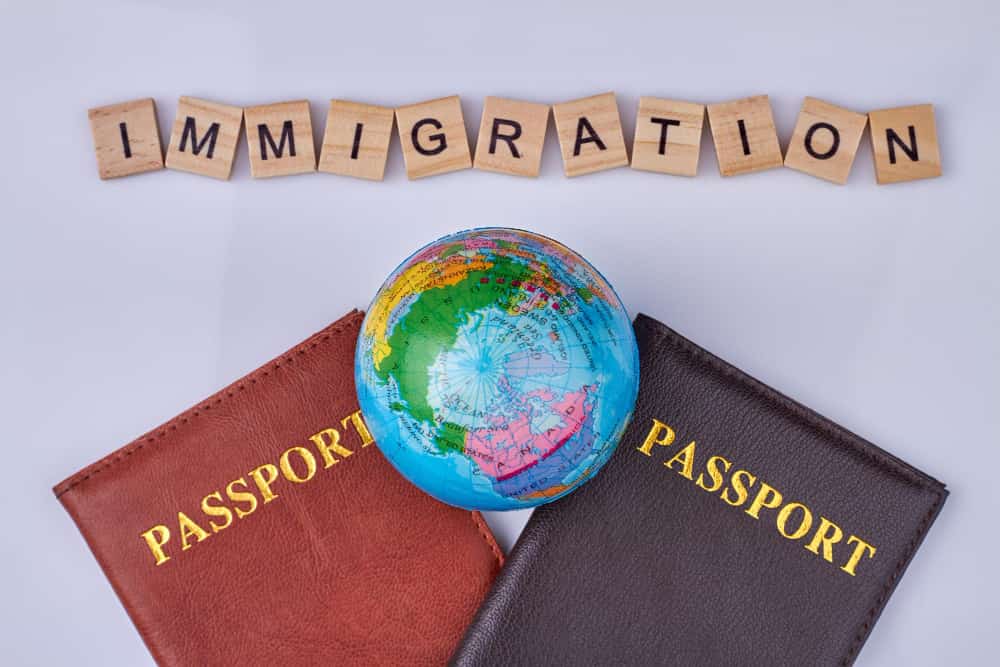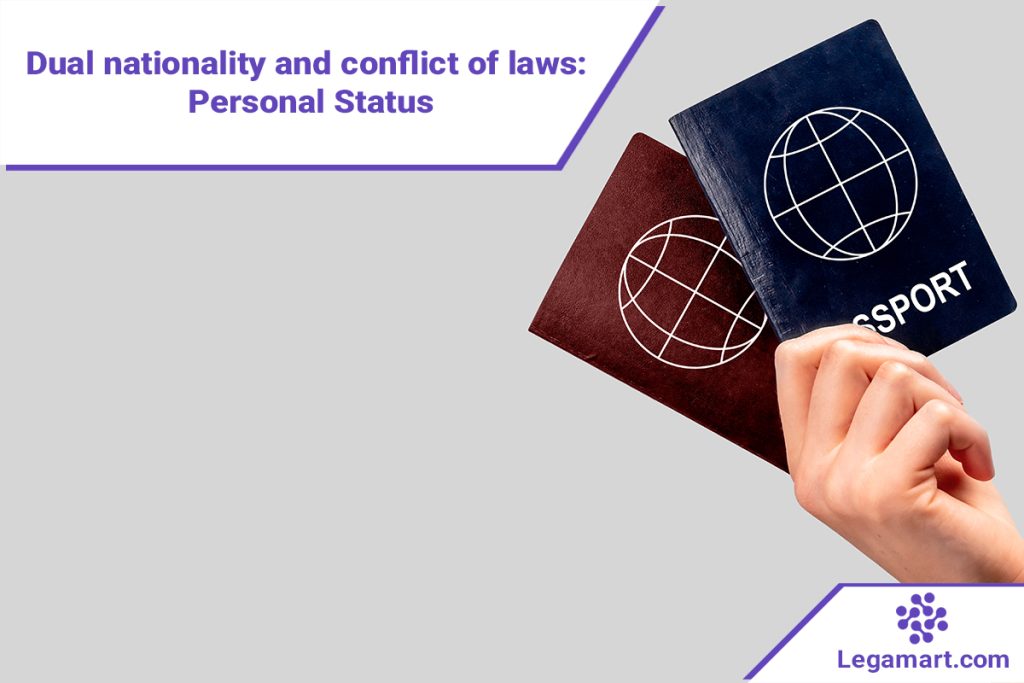Introduction
It may sound surprising that any individual could be a citizen of not one but two countries. This concept is called dual nationality. An individual with dual citizenship is a citizen of two nations together. While it may sound good on paper, it has both advantages and disadvantages due to the complexities of dual nationality and conflict of laws. One of the significant benefits could be the capability to maintain two passports.
On the other hand, a significant disadvantage is the possibility of double taxation. But it is vital to declare beforehand that not all countries allow dual citizenship, but the United States of America does. However, it is critical to comprehend that U.S. law does not explicitly talk about dual nationality or mandatorily demand an individual to select one nationality or another. Similarly, other countries have different opinions and laws about dual citizenship.
In this article, we shall explore the concept of dual nationality and conflict of laws in depth.
What is a Dual Nationality Status?

There have been numerous debates on the definition of nationality; however, they have not held a consistent view. However, if we were to sum it up in one sentence, it would read: Nationality is a political, legal, and spiritual relationship that links an individual to a state. Nationality creates the individual’s political status through the commitment of their loyalty toward obedience to the state’s law.
Nationality is a spiritual relationship because nationals relate a country to a state in terms of their common goals, customs, and rituals, independent of certain places and times. When someone is considered a state’s national, that nationality follows them wherever they go.
Nationality and its principles are among important issues in dual nationality in International Law because laws differ regarding the legal relationship between individuals of different nationalities. It is a nationality that serves as the most outstanding sign of geographical divisions of individuals such that it separates the individuals of one state from others. Nationality is a legal relationship because it entails legal effects in the international and domestic systems.
Dual Citizenship Advantages and Disadvantages
Advantages of Dual Citizenship
Political Rights
Dual citizens can participate fully in the political life of every country where they have a citizenship which includes the right to vote and participate in elections.
Work and Travel
If you are a foreigner, you would need a visa or permit to visit or work in any country, but this does not affect citizens with dual nationality. They can freely visit and work in countries where they have citizenship.
Social Services
Dual citizens are eligible to obtain the advantages and benefits presented by each nation where they are a citizen. For example, there may arise a situation where they would have to travel to obtain medical treatment or techniques that are not readily available in the other nation of their citizenship. They can also acquire education at similar prices which domestic students pay.
Two Passports
As mentioned at the beginning of this article, being a dual citizen gives you the power to hold two passports simultaneously. For example, if you are a U.S. citizen and a citizen of Canada, you can travel more easily between these two countries.
Property Ownership
A significant benefit for the dual citizen would be the power to possess property in either country since some countries prohibit land ownership which is accessible to citizens only. However, if you are a dual citizen, you are eligible to purchase property in any of the countries or both countries together.
Disadvantages of Dual Citizenship

Dual Obligations
One of the significant drawbacks of dual nationality and conflict of laws is that as a dual citizen, an individual is bound by the regulations of both governments. For example, if the individual is a citizen of the U.S. and a country with compulsory military service, such as Israel, they will have to relinquish their U.S. citizenship under certain circumstances, such as if they serve in a foreign army that is currently engrossed in a war against the U.S.
Double Taxation
As mentioned at the beginning of this article, a big drawback is the concept of double taxation. If that individual is living in a nation that is not the U.S, they will owe taxes to both countries. It leads to double taxation, which is not beneficial to the individual and should be avoided at all costs.
Complicated Process
Looking at the advantages, which are more than disadvantages, it is entirely natural to expect citizens to line up to apply for dual citizenship. However, the process can take many years and is excessively costly and complex. While dual nationality and conflict of laws may be a roadblock to some people, you can pick up your mobile or computing device and visit Legamart Directory, where highly experienced legal professionals can resolve your queries.
Conflicts of Laws

This article aims to answer how to deal with dual nationality and conflict of laws. Naturally, when an individual is a citizen of two nations simultaneously, questions may arise during legal proceedings as to which nation’s laws will be applicable, which is the core issue when discussing dual nationality and conflict of laws. The endorsement of dual national status in federal law has led to a spike in interest regarding dual nationality as a crisis in political science.
A landmark case on this is of Mr. Baruch Ivcher Bronstein. Like any other legal relationship, nationality involves two sides: the individual as a national and the state of nationality. However, all citizens maintain their ability, even those who do not possess nationality.
Deciding on nationality in any nation would purely depend on the particular regulation of that land, and this is the nation’s law that would clearly state the requirements of its citizens according to its household regulations and laws. A nation’s citizen benefits from all the rights available in that nation which is established on equality.

One of the significant and well-known conventions that deal with the concept of dual nationality and conflict of laws is the Hague Convention on Certain Questions Relating to the Conflict of Nationality Laws, 1930, which entered into force in 1937 and was primarily concerned with cases of dual nationality. It was explicitly mentioned and acknowledged in the convention.
It reveals that when a dispute arises, an account should be taken of the individual’s choice. Article 5 of the convention clearly states, “Within a third State, a person having more than one nationality shall have the same rights as if he had only one. The state shall identify solely in its territory either the nationality of the country in which he is habitually and predominantly resident, or the nationality of the country with which in the occurrences he appears to be most closely related.”
In case you still have questions about dual citizenship, we offer our readers the opportunity to post and view other questions for FREE on our community page, where people are discussing and have already answered your questions.
Conclusion
The eventual solution to dual nationality and conflict of laws lies in the universal adoption of a uniform rule for acquiring nationality at birth and through naturalization. It feels, however, that too much emphasis is placed on theory and not enough on the groundwork necessary to bring about acceptance of the universal rule.
It is recommended that a registry of nationality laws be established and kept current by the international community or private agencies interested in developing dual Nationality in International Law. It would eliminate some of the confusion concerning nationality laws and their authoritative interpretations. It is highly recommended that the States consider that matters of nationality are not exclusively within their domestic jurisdiction.
Uncover the steps and procedures for immigration to different nations, with a focus on Turkey to Norway and US to Portugal, in Legamart’s insightful articles.




